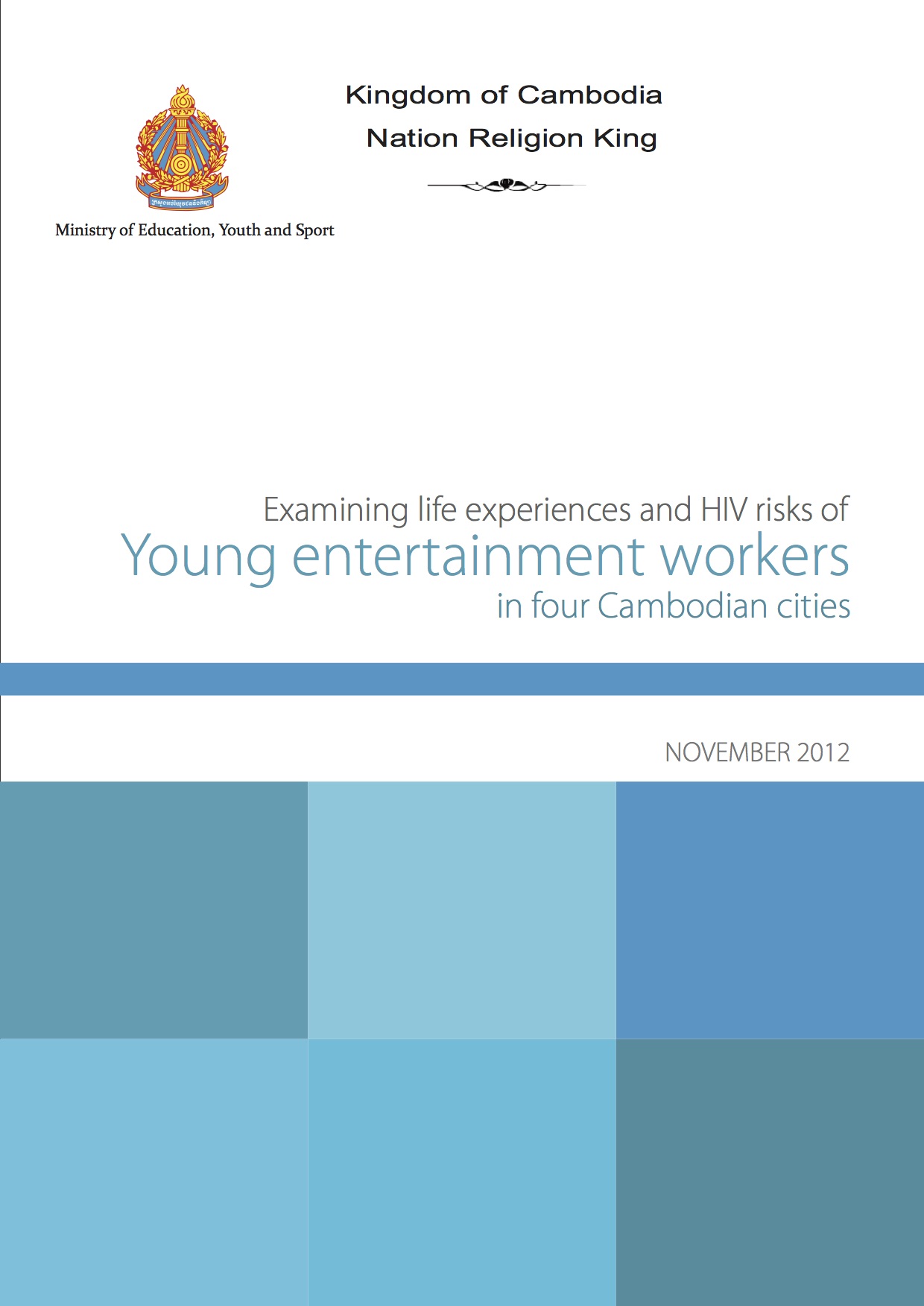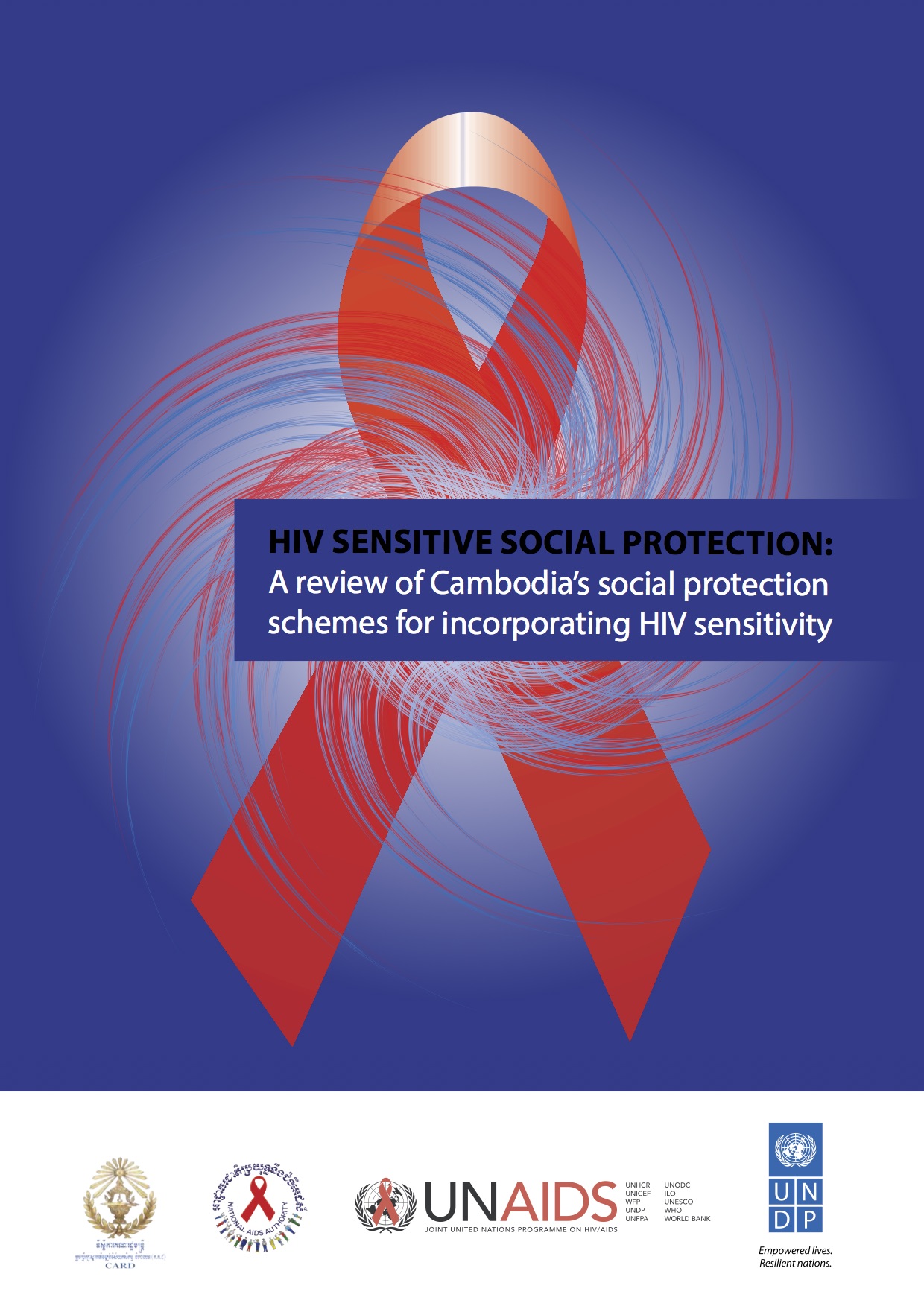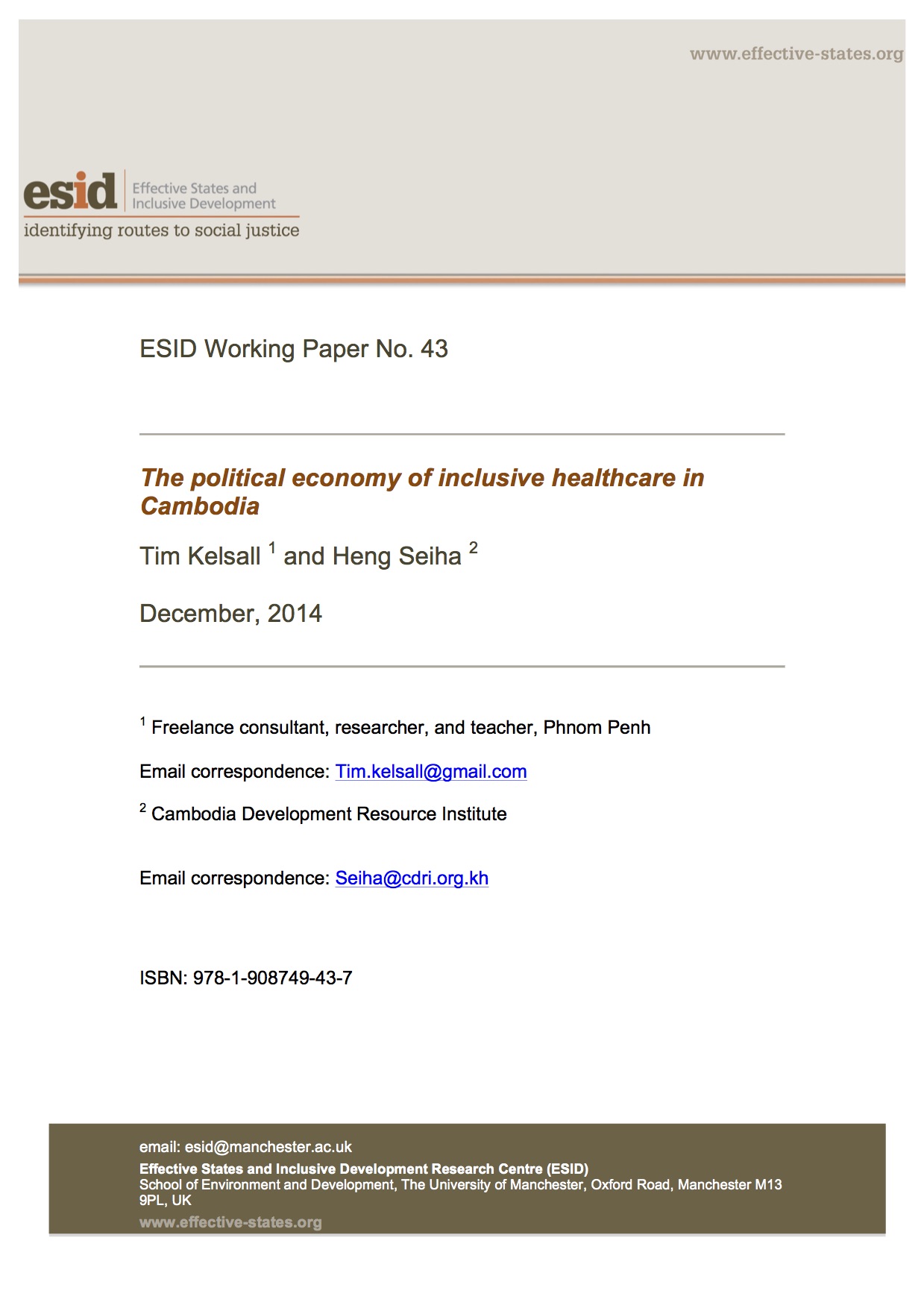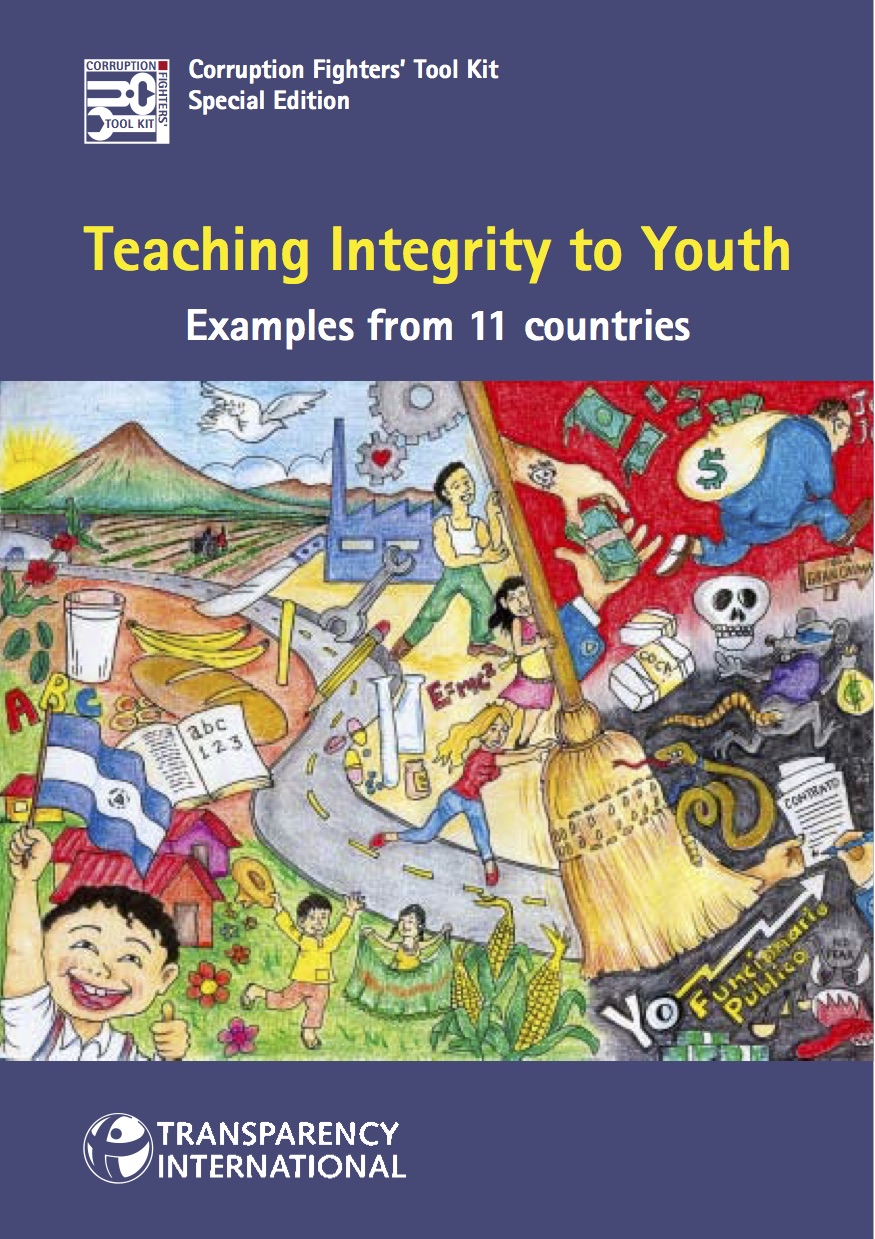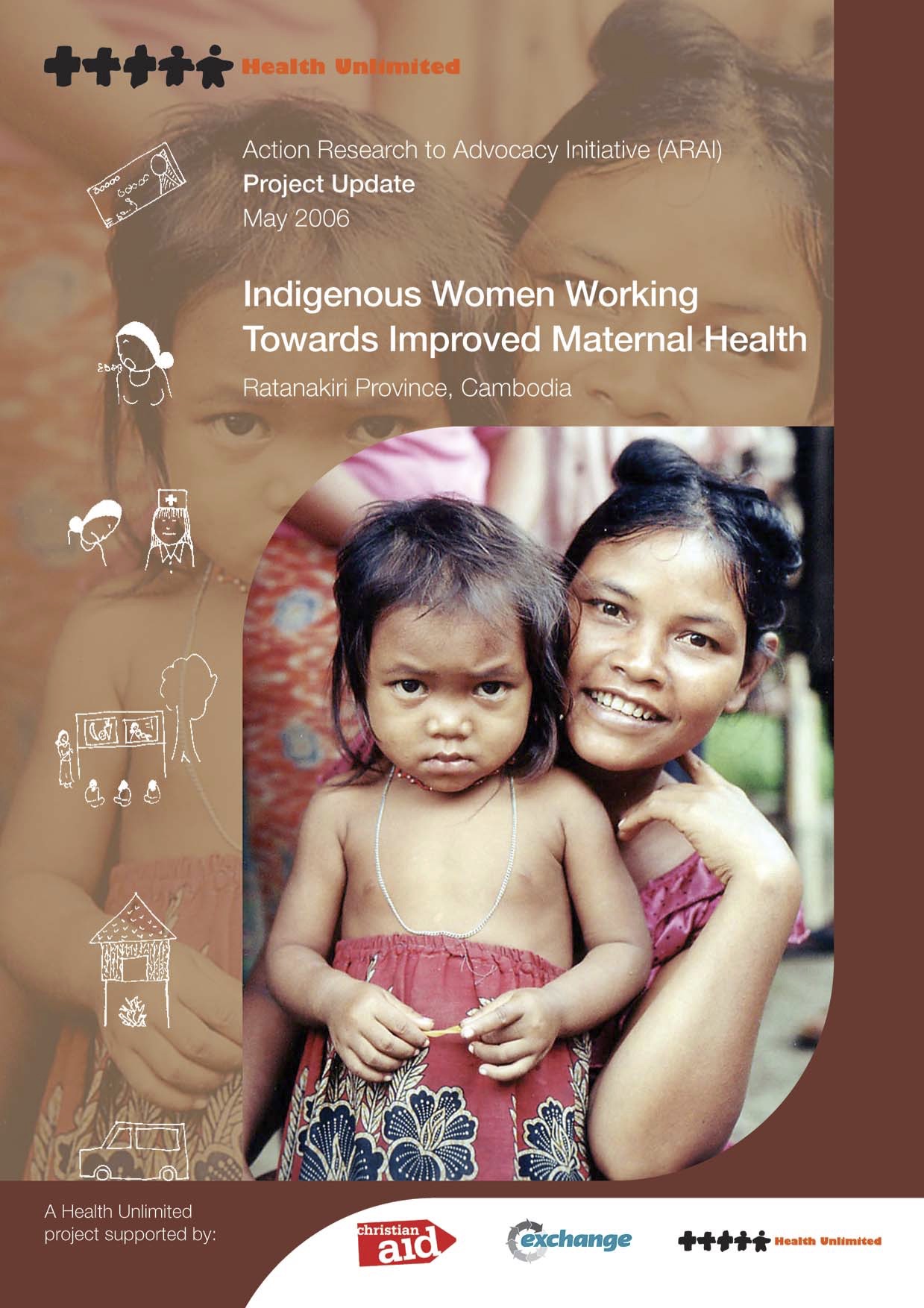Latest Entries
Examining life experiences and HIV risks of Young entertainment workers in four Cambodian cities
Publication Year: 2012 / Sources: Ministry of Education, Youth and SportAlthough Cambodia has made significant strides in reducing HIV prevalence, from 2.1% in 1998 to an estimated 0.8% in 2011, there remain pockets of high risk, particularly among entertainment workers (EWs—direct and indirect sex workers who are collectively referred to as EWs), men who have sex with men (MSM), transgender (TG), and injecting drug users. Of note, many members of these most-at-risk populations are young. Globally, young people—defined by the United Nations as 15-24 year olds—account for 40% of all new HIV infections. High risk behaviors, laws and policies that exclude young people from accessing sexual health care and HIV related services, and the lack of age appropriate sex and HIV prevention education puts young people at increased risk of HIV infection. According to a recent National AIDS Authority (NAA) report, a minority of young people in Cambodia have comprehensive knowledge of HIV. Further, although sex by the age of 15 is relatively uncommon the 2010 MARYP survey reveals pockets of high risk, with limited use of condoms in sweetheart relationships.
A review of Cambodia’s social protection schemes for incorporating HIV sensitivity
Publication Year: 2013 / Sources: UNDP CambodiaWhile Cambodia has successfully reduced the aggregate level of HIV infection through committed government leadership, effective policies, and strong civil society engagement, HIV is still directly affecting more than 60,000 households across the country. Based on the national average household size of 4.7, this amounts to at least 280,000 individuals, or more than 2% of Cambodia’s total population, who may belong to marginalized sections of society.
The political economy of inclusive healthcare in Cambodia
Publication Year: 2014 / Sources: Effective States and Inclusive Development Research Centre (ESID)Over the past 15 years, Cambodia has made significant strides in expanding effective access to free healthcare for poor people, thanks largely to ‘Health Equity Funds’ (HEFs), a multi-stakeholder health-financing mechanism. HEF operators have helped expand access, incentivise health staff, and lobby on behalf of poor patients. However, despite their successes, they have been unable convincingly to address some of the deeper-seated problems of the Cambodian health system, such as under-resourced facilities, underpaid, poorly qualified staff, and a burgeoning private sector. This paper explains this state of affairs as a product of Cambodia’s ‘political settlement’, in which relatively successful multi-stakeholder initiatives exist as ‘islands of effectiveness’ in a sea of rent-seeking and patronage. While such islands may currently be the best solution available for poor people, the deeper problems are unlikely to be solved without a shift in the political settlement itself.
Teaching Integrity to Youth
Publication Year: 2004 / Sources: Transparency InternationalThe Transparency Task Force (TTF) a working group consisting of staff of the Center for Social Development and the Ministry of Education, aims at strengthening the moral values of school students through integrating accountability and good governance concepts into school curriculum. To this end, teacher guide books for subjects including Khmer language, civic education, home economics and history, from grades one to twelve, have been developed, and teachers have been trained in using them. So far, 6,000 teachers have been trained in 19 provinces and cities in Cambodia between 1999 and 2002. This project has been implemented over a large scale, reaching out through a systematic training process. It illustrates a flexible and creative approach to developing ethical education tools to compliment existing teaching materials.
Indigenous Women Working Towards Improved Maternal Health
Publication Year: 2006 / Sources: Action Research to Advocacy Initiative (ARAI)The Action Research to Advocacy Initiative (ARAI) forms part of a process to establish a common advocacy agenda across Health Unlimited projects worldwide. After consultation with Health Unlimited country managers in Summer 2004, it was agreed to focus on access to maternal health care services as a common issue across many of our programmes. Indigenous communities in Ratanakiri, Cambodia, where Health Unlimited has worked for 14 years, were selected to initiate the ARAI. The project aims to tackle the barriers indigenous communities face in accessing maternal health services through the development and implementation of an inclusive advocacy strategy.

